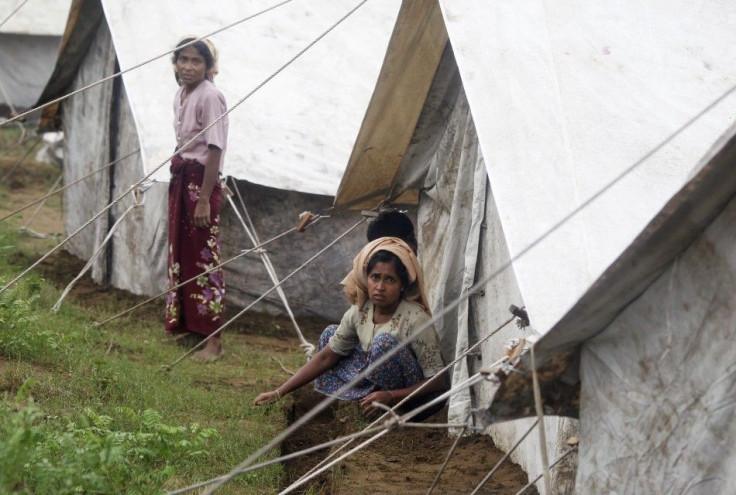UN Urges Bangladesh To Accept Rohingya Refugees Fleeing Myanmar Violence

The United Nations is beseeching Bangladesh to accept thousands of Rohingya Muslim refugees who seek to escape the worsening sectarian violence in the Rakhine province of neighboring Myanmar (Burma).
The Office of the United Nations High Commissioner for Refugees, or UNHCR, in Geneva said in a statement that it recognizes that, for years, Bangladesh has been bearing the brunt of the forced displacement caused by earlier crises in Myanmar … [but] UNHCR hopes that Bangladesh will respond in line with the country's long history of compassion and solidarity.”
Thus far, at least 25 people have been killed and hundreds of houses destroyed in violence between minority Muslims and dominant Buddhists in Rakhine. The unrest has prompted Myanmar President Thein Sein to declare a state of emergency in the province, ordering the military to restore order.
Meanwhile, about 1,500 Rohingya, including women, children and the wounded, who sought a safe haven in Bangladesh by sea, have already been turned back by Bangladeshi naval authorities.
[There are desperate people on board in need of water, food and medical care,” UNCHR lamented.
“It is vital that these people are allowed access to a safe haven and shelter.
But convincing Bangladesh to take on Rohingya will be a hard sell given that Bangladesh is an overcrowded, impoverished nation that is already housing some 200,000 Rohingya refugees in various camps.
Rohingya are unwanted in both countries. In Myanmar, they are regarded as “illegal immigrants” and have no rights to citizenship. The Burmese military has long repressed and persecuted the community.
Numbering some 800,000, Rohingya account for only about 4 percent of Burma’s total population but are concentrated in Rakhine.
UNHCR is also concerned about events in Rakhine itself, where some U.N. envoys have been dispatched to observe.
The security situation in the affected areas is tense,” the body said.
“The [Myanmar] government efforts to restore the rule of law are continuing. Considering the level of destruction seen in the area, we estimate that the displacement and the needs could be considerable.
© Copyright IBTimes 2024. All rights reserved.











